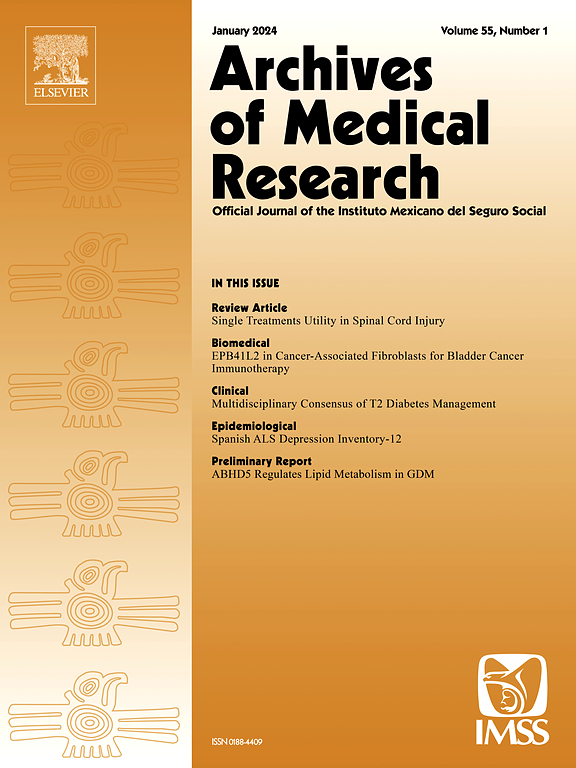Design and implementation of a stakeholder consultation process for rapid health technology assessments in Argentina
IF 4.7
3区 医学
Q1 MEDICINE, RESEARCH & EXPERIMENTAL
引用次数: 0
Abstract
Introduction
Health technology assessment (HTA) is a standardized methodology that allows the assessment technologies’ value. By incorporating the perspective of stakeholders in a public consultation process, transparency and quality of decisions can be improved.
Objective
To describe the active stakeholder consultation process for rapid HTAs in an Argentinean, independent, academic, non-profit HTA agency, assessing its initial five years.
Methods
Since 2017, we have been conducting an active public consultation process for rapid HTA documents, inviting producers, healthcare professionals, and patient organizations to provide comments, and their input may lead to changes in the HTA documents. Changes were classified as major (changes to the coverage recommendation), intermediate (changes in efficacy, net benefit, or cost-effectiveness that did not change coverage recommendations), and minor modifications (other changes).
Results
From May 2017–August 2022, 308 rapid HTA (rHTA) reports were published, and 3,438 invitations were sent. 140 rHTA (45.5%) received a total of 228 comments. Comments came from producers in 53% (n = 112) and healthcare professional organizations in 31.2% (n = 66). Technologies evaluated were drugs in 37% (n = 114), procedures in 35.5% (n = 109), diagnostic methods in 15.3% (n = 47), and devices in 12.2% (n = 38). Out of 308 rHTA documents, 120 (39%) were modified—mostly minor adjustments (n = 100; 80%), followed by major (n = 12; 10%) and intermediate modifications (n = 8; 6.4%).
Conclusion
Implementing an active stakeholder involvement process in HTA is feasible in a low- to middle-income country context and strengthens and improves the HTA process.
阿根廷快速卫生技术评估利益相关者磋商程序的设计与实施。
导言:卫生技术评估(HTA)是一种可以评估技术价值的标准化方法。通过将利益相关者的观点纳入公共咨询过程,可以提高决策的透明度和质量:描述阿根廷一家独立、学术性、非营利性 HTA 机构为快速 HTA 积极开展利益相关者咨询的过程,评估其最初五年的情况:自 2017 年以来,我们一直在对快速 HTA 文件进行积极的公众咨询,邀请生产者、医疗保健专业人士和患者组织提供意见,他们的意见可能会导致 HTA 文件的更改。修改分为重大修改(覆盖建议的修改)、中级修改(疗效、净效益或成本效益的修改,但不改变覆盖建议)和轻微修改(其他修改):从 2017 年 5 月至 2022 年 8 月,共发布了 308 份快速 HTA(rHTA)报告,发出了 3438 份邀请函。140份rHTA(45.5%)共收到228条意见。53%(n = 112)的评论来自生产商,31.2%(n = 66)的评论来自医疗保健专业组织。接受评估的技术中,药物占 37%(114 人),程序占 35.5%(109 人),诊断方法占 15.3%(47 人),设备占 12.2%(38 人)。在 308 份 rHTA 文件中,有 120 份(39%)进行了修改--主要是小幅调整(n = 100;80%),其次是大幅修改(n = 12;10%)和中级修改(n = 8;6.4%):结论:在中低收入国家的情况下,在 HTA 中实施积极的利益相关者参与流程是可行的,并能加强和改进 HTA 流程。
本文章由计算机程序翻译,如有差异,请以英文原文为准。
求助全文
约1分钟内获得全文
求助全文
来源期刊

Archives of Medical Research
医学-医学:研究与实验
CiteScore
12.50
自引率
0.00%
发文量
84
审稿时长
28 days
期刊介绍:
Archives of Medical Research serves as a platform for publishing original peer-reviewed medical research, aiming to bridge gaps created by medical specialization. The journal covers three main categories - biomedical, clinical, and epidemiological contributions, along with review articles and preliminary communications. With an international scope, it presents the study of diseases from diverse perspectives, offering the medical community original investigations ranging from molecular biology to clinical epidemiology in a single publication.
 求助内容:
求助内容: 应助结果提醒方式:
应助结果提醒方式:


